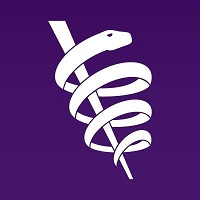 Madara discusses ambitious AMA initiatives to help physicians harness data, improve patient outcomes
Madara discusses ambitious AMA initiatives to help physicians harness data, improve patient outcomes
In his address at the American Medical Association (AMA) (@AmerMedicalAssn) Interim Meeting, AMA CEO James L. Madara, M.D., outlined the challenges and opportunities present in health data today and the revolutionary opportunity to improve patient care. Madara’s remarks follow the October launch of the AMA’s Integrated Health Model Initiative™ (IHMI), an initiative working with numerous notable collaborators from the health and technology sectors around a collaborative effort that will unleash a new era of better, more effective patient care. IHMI provides a continuous learning environment and features a digital platform, a physician-led clinical validation process and a common data model to enable semantic interoperability.
Madara acknowledged that the AMA has many immediate projects to address physician needs that are very acute. He listed the crafting of legislation, emerging regulatory frameworks, eliminating some of the common frustrations that contribute to physician burnout: as now problems. But while the AMA does this important and urgent work, Madara said the AMA must simultaneously keep its eye on the future by taking on some of the biggest and most difficult problems that physicians will face.
“It’s been said that data is the oil of this century, and so harnessing the power of health data in a way that is both efficient for the physician and improves patient care is an enormous and important challenge – one that should be led by physicians,” Madara said in his speech. “Our allies in the field are calling our IHMI solution both dearly needed and incredibly bold. It certainly could be a game-changer in health care delivery.”
IHMI fills the national imperative to pioneer a shared framework for organizing health data, emphasizing patient centric information, and refining data elements to those most predictive of achieving better outcomes. Evolving available health data to depict a complete picture of a patient’s journey from wellness to illness to treatment and beyond allows health care delivery to fully focus on patient function, state, outcomes, and goals.
“We are living in the Information Age, and yet even for that small pool of digital devices that have been well characterized as validated, evidence-based, and actionable, even the best are largely not connected; and the data that’s ultimately entered into the patient record tends to not be organized in any useful way to say the least,” said Madara. “IHMI establishes a common data model that can be more easily shared across health systems, allowing the data elements of one vendor platform to be meaningfully translated to another. This achieves interoperability, not simply by being able to share limited data elements, but by the ability to transfer real clinical meaning.”
Madara noted that, “This kind of improvement, in the long run, extracts physicians from a good chunk of the mind-numbing administrative and data entry chores they face, improvement that shifts the currently misused time to what we trained for – time with our patients.”
The AMA invites all health care and technology stakeholders to join the IHMI and contribute their unique expertise to transforming health care.
Watch Madara’s speech at AMA Wire to learn more.
